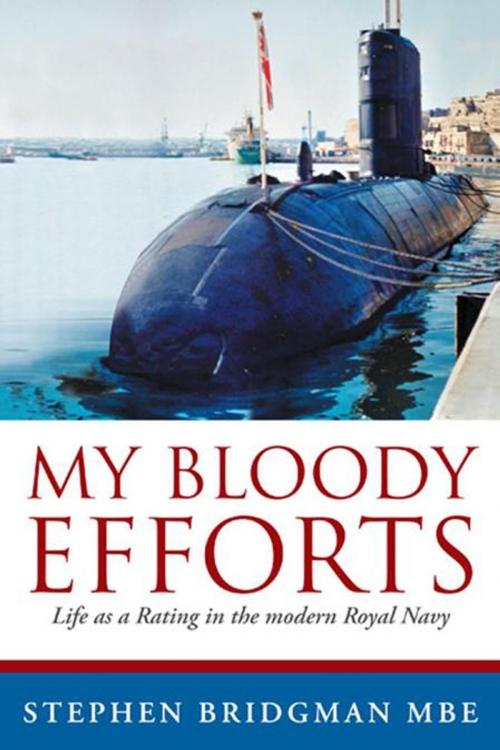| Author: | Stephen Bridgman MBE | ISBN: | 9781477218020 |
| Publisher: | AuthorHouse UK | Publication: | September 17, 2012 |
| Imprint: | AuthorHouse UK | Language: | English |
| Author: | Stephen Bridgman MBE |
| ISBN: | 9781477218020 |
| Publisher: | AuthorHouse UK |
| Publication: | September 17, 2012 |
| Imprint: | AuthorHouse UK |
| Language: | English |
In May 2000 the British nuclear hunter-killer submarine HMS Tireless limped into Gibraltar using emergency propulsion and with her nuclear reactor shut down. Days earlier, while traversing the Straits of Sicily the crew had discovered a crack in one of the nuclear reactor pipes, requiring the immediate shutting down of the reactor to prevent a potential reactor accident, an operation never before conducted on a British submarine at sea. Th e previous six days had been a difficult time for the crew of the submarine. Initial indications of a nuclear reactor defect had quickly escalated into a full scale potential nuclear reactor accident at sea, requiring decisive action by the crew to make the reactor safe, to identify the defect and attempt to repair the reactor, and then to surface the submarine and to sail her safely back to the nearest safe harbor using emergency propulsion machinery designed for very limited use. The resulting lack of electrical power resulted in the crew having to sacrifice lighting, air-conditioning, bathing facilities and even hot food until their return to harbor, and to suffer in the excessively hot interior of the boat. Throughout, there remained the fear of exposure to deadly radiation and the uncertainty that the reactor might still be one step away from a major accident. For one man onboard, this episode formed the culmination of a 25 year naval engineering career almost fated for this moment. Charge Chief Stephen Bridgman, the senior nuclear propulsion technician, had needed all of his engineering knowledge and experience in the identification and eventual repair of the submarine reactor, subsequently being awarded an MBE together with a colleague for his services to naval engineering for his actions. This book provides an insight into a remarkable naval career starting as a 16 year old Stoker on the final proper British aircraft carrier HMS Ark Royal in 1977, through the Falklands War, being selected for naval technician training and submarine service, submarine training, submarine patrols in the supposed post cold-war period, the Kosovo conflict, progression through the ranks, submarine refi t and refueling through to the nuclear reactor accident onboard HMS Tireless. While there are countless accounts of naval life during wartime, this book tells the unique story of life as a British naval rating in the modern era, starting from the lowest level at a time of decline for the Royal Navy in the late 1970s, and paralleling the major political and military events of the 1980s and 1990s.
In May 2000 the British nuclear hunter-killer submarine HMS Tireless limped into Gibraltar using emergency propulsion and with her nuclear reactor shut down. Days earlier, while traversing the Straits of Sicily the crew had discovered a crack in one of the nuclear reactor pipes, requiring the immediate shutting down of the reactor to prevent a potential reactor accident, an operation never before conducted on a British submarine at sea. Th e previous six days had been a difficult time for the crew of the submarine. Initial indications of a nuclear reactor defect had quickly escalated into a full scale potential nuclear reactor accident at sea, requiring decisive action by the crew to make the reactor safe, to identify the defect and attempt to repair the reactor, and then to surface the submarine and to sail her safely back to the nearest safe harbor using emergency propulsion machinery designed for very limited use. The resulting lack of electrical power resulted in the crew having to sacrifice lighting, air-conditioning, bathing facilities and even hot food until their return to harbor, and to suffer in the excessively hot interior of the boat. Throughout, there remained the fear of exposure to deadly radiation and the uncertainty that the reactor might still be one step away from a major accident. For one man onboard, this episode formed the culmination of a 25 year naval engineering career almost fated for this moment. Charge Chief Stephen Bridgman, the senior nuclear propulsion technician, had needed all of his engineering knowledge and experience in the identification and eventual repair of the submarine reactor, subsequently being awarded an MBE together with a colleague for his services to naval engineering for his actions. This book provides an insight into a remarkable naval career starting as a 16 year old Stoker on the final proper British aircraft carrier HMS Ark Royal in 1977, through the Falklands War, being selected for naval technician training and submarine service, submarine training, submarine patrols in the supposed post cold-war period, the Kosovo conflict, progression through the ranks, submarine refi t and refueling through to the nuclear reactor accident onboard HMS Tireless. While there are countless accounts of naval life during wartime, this book tells the unique story of life as a British naval rating in the modern era, starting from the lowest level at a time of decline for the Royal Navy in the late 1970s, and paralleling the major political and military events of the 1980s and 1990s.















